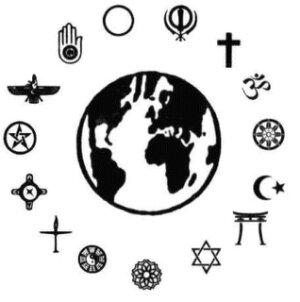
Utopias are perfect societal structures that are goals to be attained. They are dreams that will never be fulfilled whether they are based on Plato’s Republic or Thomas Mores’ ideal economy. These are dreams that provide us with targets to aim for but that we will not attain. If a utopia is to be achieved then that would be the end of history, a stage of perfect homogeneity and no conflict.
No world society is at that stage, although some have argued that certain states are closer to the end of history than others. Democracy , when seen in the above light, is such a conception that is to be approached asymptotically and so obviously never reached. That is true of all societies and all states including the experiment that we know as the United States. We all know of many severe challenges that the US system is constantly struggling with such as the relatively major income inequality, the presidential electoral system, the role of money in all elections and the corporate influence in shaping the legislative process. It is clear that given such challenges the resulting democracy is nowhere close to perfect but yet it can be argued that in many areas such as the principles of separation of church and government in addition to the tremendous seriousness given to the issue that is commonly known as “ first freedom” make it very difficult , even impossible, to violate the principle of freedom of religion as spelled out in the first amendment: “Congress shall make no law respecting an establishment of religion, or prohibiting the free exercise thereof; or abridging the freedom of speech, or of the press; or the right of the people peaceably to assemble, and to petition the Government for a redress of grievances. “
A democratic system might not be perfectly equitable or perfectly just but it cannot afford to violate personal freedom of expression and religion. There ought to be no room whatsoever in the public square for religious affairs since these are best viewed as issues of personal faith. I have every reason to believe that the United States looks upon this issue with the utmost seriousness it deserves and will not knowingly violate any persons’ right to worship whoever she wants anyway she desires provided that such an exercise does not impinge on any other persons rights.

The controversy regarding the issue of the construction of a mosque close to ground zero in New York City must be seen within the above parameters. Ideally this means that any individual or group of people should have the right to practice their faith anywhere they want as long as that does not impinge on the rights of others. No one in Manhattan has said that the group of Moslems does not have the right to worship or to build a mosque; the only objections raised are based on the appropriateness of the location. The Mayor of the city, Mr. Bloomberg, has given his unqualified support for the construction of the Islamic center where it is proposed since it meets all the zoning requirements and I believe that the center would be built where proposed.
If for any reason the planned Islamic center is relocated then that unlikely event would be a reflection of Islam phobia and not a violation of the seminal constitutional principle embodied by the first amendment. Fellow Muslims will still be free to pray and build their houses of worship but not in that particular location which will be a tragedy but not a constitutional catastrophe.
If it ever comes to that , which I doubt that it will, then the most obvious question that should be raised by Arabs and Moslems alike is Why did so many of the well educated and enlightened United States citizens develop an Islam phobia but not a Buddhist phobia or a Hindu phobia? Is there something that we can do as a community to allay these fears, as unreasonable as they might seem? Could it be that when so many terror attacks were carried in the name of Islam that not enough was done to denounce these attacks? Could it be that the small groups of fundamentalists have been allowed to hijack Islam without any major rebuttals from the mainstream Islamic power structure? But above all are there many Arab countries that can truly object to religious discrimination by pointing out to religious freedoms in their countries?
The controversy in lower Manhattan does not rise to the level of being a violation of the first amendment. The Islamic center should be built as proposed but if for one reason or another a zoning justification is found to move it to a different location then Islam phobia would be the reason.
If that is to transpire then it would be the duty of every US citizen to analyze in a detached manner the unfairness and the injustice of such a selective judgment. May this controversy also lead to serious soul searching in the Arab countries also? We need to recognize that when we place severe restrictions on the religious practice of non Moslems in our countries and when we prohibit the building of non Islamic houses of worship or place restrictions on the use of religious symbols then we would have abandoned the right to criticize others when their acts infringe on the rights of our fellow religionists. In a perfect world there should be no restrictions on anyone to believe or not believe but in an imperfect world we need to find out the reason for popular phobias.
